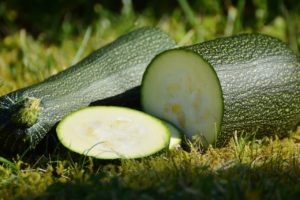CoQ10 is a vitamin-like compound that is produced naturally in the human body and is also found in most living organisms. It is also called ubiquinone, a combination of quinone, a type of coenzyme, and ubiquitous, meaning it exists everywhere in the human body. CoQ10 plays an important role in your body’s energy production and is an essential component of the mitochondria, where it helps to metabolize fats and carbohydrates and maintain cell membrane flexibility. CoQ10 is also involved in the production of several key enzymes that are used to create ATP, which is burned by your body for energy, and in the energy transfer between mitochondria and cells. Without CoQ10, you would not be able to function!
What is its history?
CoQ10 was first discovered by Dr. Frederick Crane of the University of Wisconsin in 1957. One year later, Professor Karl Folkers and others at Merck Incorporated identified and recorded CoQ10’s chemical structure, and were the first to produce it through fermentation. Intermittent research led to its use in Japan for cardiac insufficiencies during the 1960’s. Dr. Folkers championed more intensive research into CoQ10’s role in cardiovascular health in 1972, after he and an Italian scientist, Gian Paolo Littarru, discovered that persons with cardiac insufficiencies had very low levels of CoQ10, and supplementation increased CoQ10 levels and positively affected heart health. Soon afterwards, the Japanese developed a method that allowed pure CoQ10 to be produced in quantities large enough for significant clinical trials. During the 1980’s this method was perfected in Japan, and medical technology finally allowed scientists to measure CoQ10 levels in blood and tissues, leading to a surge in further research. It was during this time that a Swedish researcher, Lars Ernster, drew attention to CoQ10’s role as a free radical-scavenging antioxidant. Today a multitude of research supports CoQ10’s health benefits.
As a result of the overwhelmingly positive reports from studies conducted since CoQ10’s discovery, the Japanese were the first to approve widespread use of CoQ10, granting market approval for it in 1974. From 1974 to 1982, CoQ10 use in Japan grew rapidly until it was one of the most widely used products in the Japanese pharmaceutical industry. It is still widely used today, and has a long history of safe use. In “An Introduction To Coenzyme Q10” by Peter H. Langsjoen, M.D., F.A.C.C., he lists the substantial amount of scientific evidence that supports CoQ10’s benefits. “Internationally, there have been at least nine placebo controlled studies on the treatment of heart disease with CoQ10: two in Japan, two in the United States, two in Italy, two in Germany, and one in Sweden. All nine of these studies have confirmed the effectiveness of CoQ10 as well as its remarkable safety. There have now been eight international symposia on the biomedical and clinical aspects of CoQ10 (from 1976 through 1993). These eight symposia comprised over 3000 papers presented by approximately 200 different physicians and scientists from 18 countries.” “The majority of the clinical studies concerned the treatment of heart disease and were remarkably consistent in their conclusions: that treatment with CoQ10 significantly improved heart muscle function while producing no adverse effects or drug interactions.”
How does it help?
Virtually every cell of the human body contains CoQ10. The mitochondria, the area of cells where energy is produced, contain the most CoQ10. The heart and liver contain the greatest amount of CoQ10. It has helped some people with congestive heart failure(CHF) an effect reported in an analysis of eight controlled trials and found in some, though not all, double-blind studies. The beneficial effects of CoQ10 may not be seen until after several months of treatment. Discontinuation of CoQ10 supplementation in people with CHF has resulted in severe relapses and should only be attempted under the supervision of a doctor.
Similar improvements have been reported in people with cardiomyopathies a group of diseases affecting heart muscle. Research (including double-blind studies) in this area has been consistently positive.
Also, due to its effect on heart muscle, researchers have studied CoQ10 in people with heart arrhythmias. Preliminary research in this area reported improvement after approximately one month in people with premature ventricular beats (a form of arrhythmia) who also suffer from diabetes.
Angina patients taking 150 mg per day of CoQ10 report a greater ability to exercise without experiencing chest pain. This has been confirmed in independent investigations.
CoQ10 appears to increase the heart’s tolerance to a lack of oxygen. Perhaps as a result, preliminary research has shown that problems resulting from heart surgery occurred less frequently in people given CoQ10 compared with the control group.
Muscle mitochondria lack adequate CoQ10 in people with muscular dystrophy, a problem that could affect muscle function. In a double-blind three-month trial, four of eight people with muscular dystrophy had improvements in heart function and sense of well-being when supplementing CoQ10.
Mitochondrial function also appears to be impaired in people with Alzheimer’s disease. Due to CoQ10’s effects on mitochondrial functioning, one group of researchers has given CoQ10 (along with iron and vitamin B6) to several people with Alzheimer’s disease and reported the progression of the disease appeared to have been prevented for one and a half, to two years.
CoQ10 also modulates immunity. Perhaps as a result, a few cases have been reported in which women with metastatic breast cancer (cancer that had spread to other tissues) had a regression of their cancer after treatment with a very large amount of CoQ10 (390 mg per day).
CoQ10 appears to modulate blood pressure by reducing resistance to blood flow. Several trials have reported that supplementation with CoQ10 significantly reduced blood pressure in people with hypertension, usually after ten weeks to four or more months of treatment.
Where is it found?
CoQ10 is found primarily in fish and meat, but the amounts in food are far less than what can be obtained from supplements.
Who is likely to be deficient?
Deficiency is poorly understood, but it may be caused by synthesis problems in the body rather than an insufficiency in the diet. Low blood levels have been reported in people with heart failure, cardiomyopathy, gingivitis(inflammation of the gums), morbid obesity, hypertension, muscular dystrophy, diabetes, AIDS, and in some people on kidney dialysis. People with phenylketonuria(PKU) may be deficient in CoQ10 because of dietary restrictions. CoQ10 levels are also generally lower in older people. The test used to assess CoQ10 status is not routinely available from medical laboratories
An isolated test tube study reported that the anticancer effect of a certain cholesterol-lowering drug was blocked by addition of CoQ10. So far, experts in the field have put little stock in this report because its results have not yet been confirmed in animal, human, or even other test tube studies. The drug used in the test tube is not used to treat cancer, and preliminary information regarding the use of high amounts of CoQ10 in humans suggests the possibility of anticancer activity.
Benefits
• may beneficially affect the aging process
• improves heart muscle function
• reduces blood pressure in people with hypertension
• boosts overall immune function






